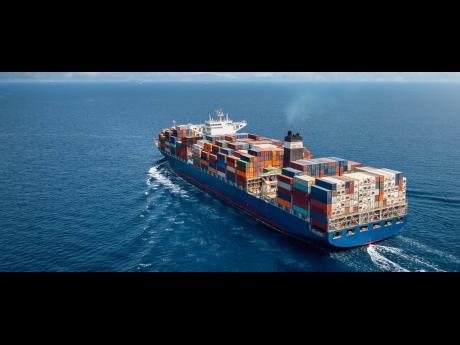Driving Jamaica’s green initiatives for sustainable shipping
SHIPPING IS the lifeblood of the Jamaican economy. Without shipping there would be no energy to power our homes and businesses, no motor vehicles for transportation or basic food items like rice and flour.
For these goods to arrive at our ports on time and intact, the ships that transport these goods must operate in a highly regulated environment governed by universal instruments adopted by the International Maritime Organization (IMO). The primary global agreement that governs the safe and secure operation of ships is the International Convention on the Safety of Life at Sea (SOLAS), 1974. This year’s World Maritime Day theme, ‘Navigating the Future: Safety First’, is in recognition of the role that the regulation of safety and the SOLAS Convention plays in the shipping industry.
The SOLAS Convention is incorporated in the Shipping Act, 1998, which is implemented by the Maritime Authority of Jamaica (MAJ) and ensures that Jamaican ships operating globally, and all ships operating in our waters and calling at our ports, comply with the provisions of the convention.
At the time of its adoption, the SOLAS Convention primarily addressed matters related to life-saving equipment and radio communication in direct response to the 1912 Titanic disaster. However, the convention has evolved to meet several current issues facing the shipping industry, including decarbonisation.
The shipping and logistics sector, while contributing approximately three per cent of global greenhouse gas emissions, feels the direct effects of climate change, with many vessels having to operate in extreme weather conditions, resulting in the loss of cargo, injury to and death of seafarers, and damage to the marine environment.
Two hundred and twenty-one containers were lost at sea in 2023, and in 2025, amendments to the SOLAS Convention, making it mandatory for ship masters to report the containers at sea to the nearest coastal state, will come in force.
In response to the effects of climate change, the MAJ, acting on behalf of Jamaica, and other member states of the IMO are negotiating measures that will reduce ship emissions by the introduction of new fuels such as methanol, hydrogen, and ammonia, among other things. These zero carbon fuels, which will replace fossil fuels, carry their own risks to the seafarers tasked with operating the ships using these fuels as well as the ships that will carry these fuels as cargo to bunker stations. Additional training in handling the cargoes, firefighting, and emergency response will, therefore, be required for seafarers.
The MAJ has oversight responsibility for the seafaring programme at the Caribbean Maritime University and for the examination certification of Jamaican seafarers and is currently participating in the discussions at the IMO leading to the development of the new safety guidelines and training requirements for the use and carriage of these fuels.
A high level of collaboration between the public and private stakeholders in the shipping industry will be required to ensure that as the shipping industry takes steps to decarbonise, the seafarers, who are the backbone of the global supply chain, will not be left behind.

